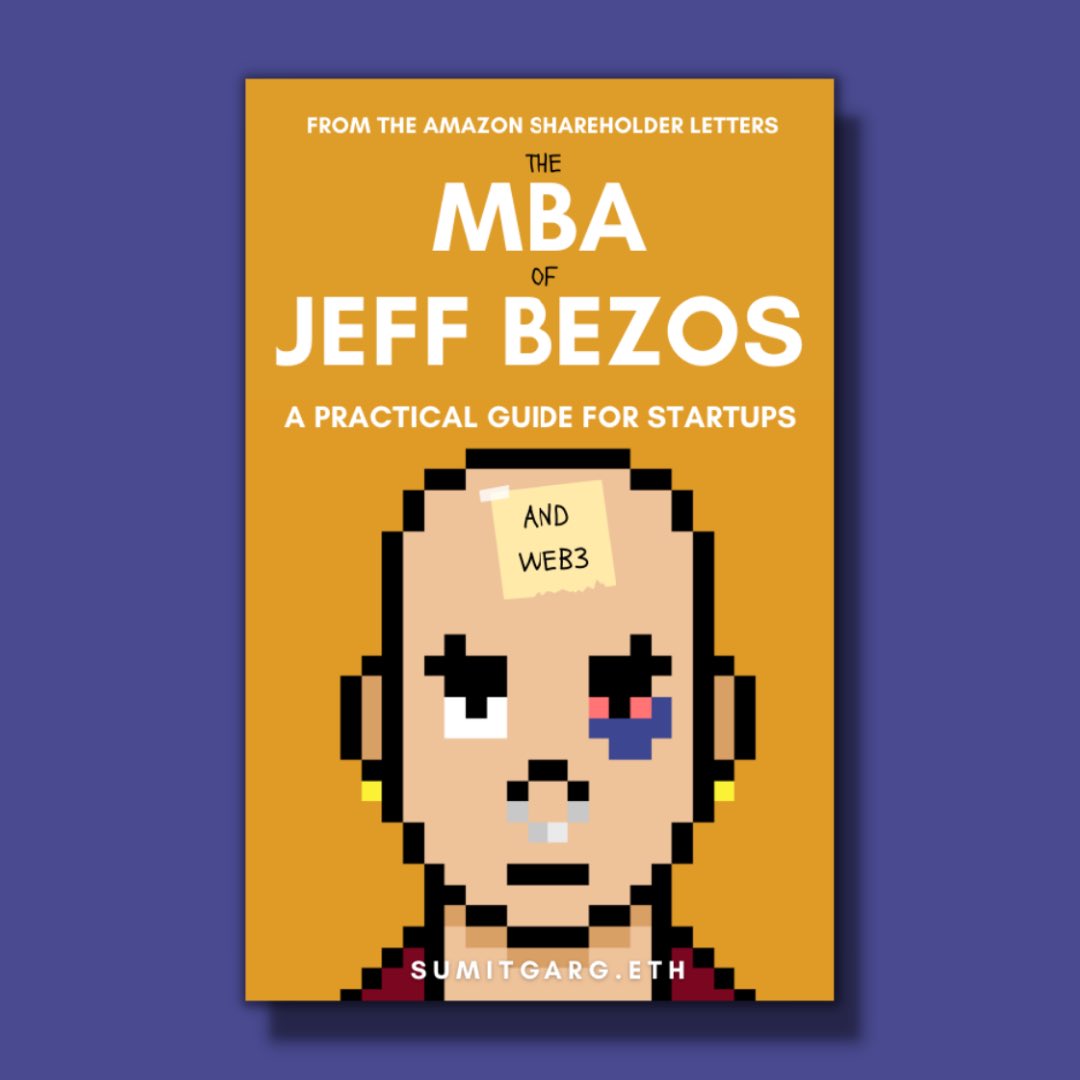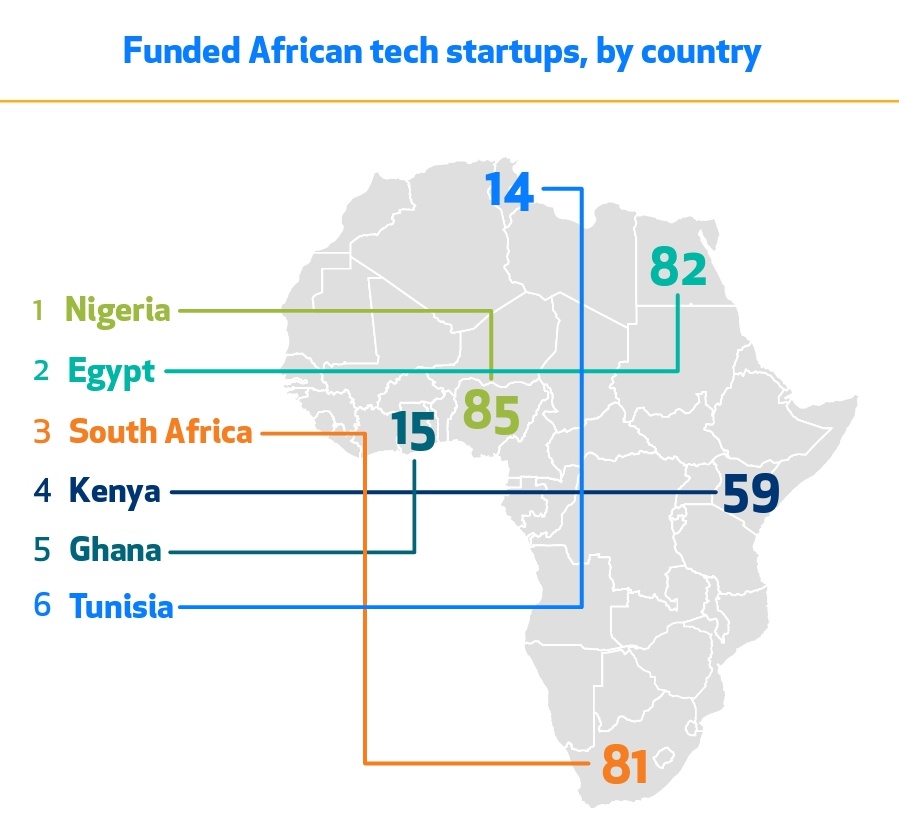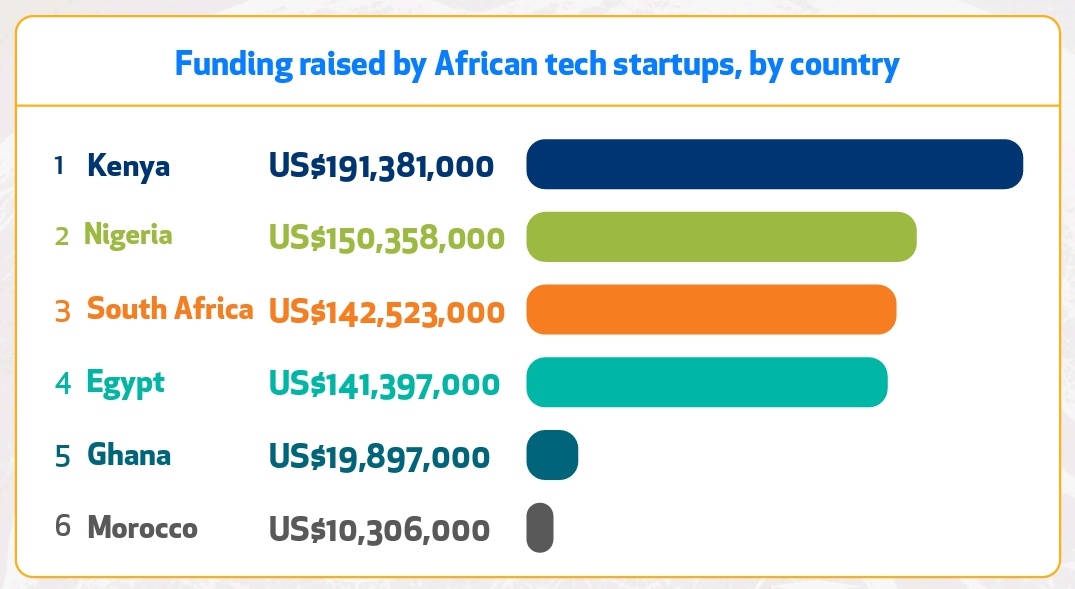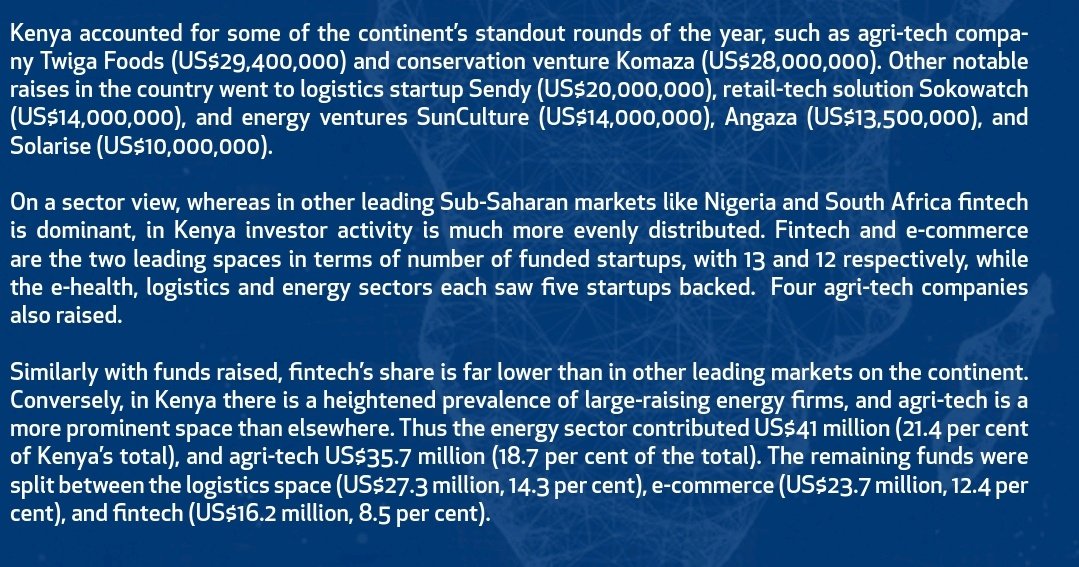I've read all of Jeff Bezos's 23 years of Amazon shareholder letters twice now.
It's an MBA of its own.
Here's what I learned about startups, entrepreneurship, investing and more:
We set ourselves the incredibly audacious goal of improving upon the physical book.
So don't be afraid to set big goals.
And remember that if you don't execute well, it will be done by someone else.
So then, when you fix it, you’re not just fixing it for one customer. You’re fixing it for every customer.
Success often comes through iteration: invent, launch, reinvent, relaunch, start over, rinse, repeat, again and again.
Remember that failure is part invention.
So better to fail early and iterate until you get it right.
Outsized returns come from betting against conventional wisdom.
Given a ten percent chance of a one hundred times payoff, you should take that bet every time.
But you're still going to be wrong nine times out of ten.
1/2
Let's talk about baseball.
If you swing for the fences, you're going to strike out a lot, but you're also going to hit some home runs. It's as true for business as it is for baseball.
However, there's just one difference.
Baseball has a truncated outcome
distribution: No matter how well you connect, the most you can get is 4.
In business, every once in a while, when you step up to the plate, you can score one thousand runs.
This long-tailed distribution of returns is why you should be bold.
1/2
If you had asked a customer "Would you like a black, always-on cylinder in your kitchen about the size of a Pringles-can that you can talk to and ask questions, that also turns on your lights and plays music?"
They would've said no.
No customer was asking for Echo. This was definitely Amazon wandering.
Wandering is an essential counterbalance to efficiency.
You need to employ both.
The outsized discoveries require wandering.
Many investors are short-term tenants, they turn their portfolios so quickly that they are really just renting the stocks they temporarily "own."
Owners aren't so short-sighted.
Long-term thinking is both a requirement and an outcome of true ownership.
— Benjamin Graham
You aren't 10% smarter with a 10% increase in stock price and conversely aren't 10% dumber when it goes down.
Always want to be weighed.
3 questions to consider before hiring:
1. Will you admire this person?
2. Will they raise the average level of effectiveness of the group?
3. Along what dimension might this person be a superstar?
Once a year, Amazon offers to pay its employees to quit.
While the headline says "Please Don't Take This Offer." The goal is to make them rethink their priorities.
An employee staying somewhere they don't want to be isn't healthy for the employee or the company.
(Amazon leadership principles)
1/2
First, you have to be able to recognize what good looks like in that domain.
Second, you must have realistic expectations for how hard it should be to achieve that result — the scope.
Just one example / perfect headstands
Most people think that if they work hard, they can master a handstand in about two weeks.
In reality, it takes about six months of daily practice.
If you think you can do it in two weeks, you're just going to end up quitting.
Wait for 90, and you're being slow.
Plus, if you're good at course correcting, which you should be, then being wrong will be less costly than being slow.
If you have conviction without consensus, it's helpful to say,
"Look, I know we disagree on this, but will you gamble with me on it?"
No one can know the answer for sure, and you'll probably get a quick yes.
Day 2 is stasis. Followed by irrelevance. Followed by excruciating, painful decline. Followed by death.
And that is why it is always Day 1.
At 15 mins, it's slightly bigger — enough to share the ideas more freely. It's $9, so, maybe, show your support!
Regardless, retweet, and follow me @sumitgrrg for more of these.
Thanks!
https://t.co/pa3MwgLWCj
More from Sumit Grrg
These 10 threads will teach you more than reading 100 books
Five billionaires share their top lessons on startups, life and entrepreneurship (1/10)
10 competitive advantages that will trump talent (2/10)
Some harsh truths you probably don’t want to hear (3/10)
10 significant lies you’re told about the world (4/10)
Five billionaires share their top lessons on startups, life and entrepreneurship (1/10)
I interviewed 5 billionaires this week
— GREG ISENBERG (@gregisenberg) January 23, 2021
I asked them to share their lessons learned on startups, life and entrepreneurship:
Here's what they told me:
10 competitive advantages that will trump talent (2/10)
To outperform, you need serious competitive advantages.
— Sahil Bloom (@SahilBloom) March 20, 2021
But contrary to what you have been told, most of them don't require talent.
10 competitive advantages that you can start developing today:
Some harsh truths you probably don’t want to hear (3/10)
I\u2019ve gotten a lot of bad advice in my career and I see even more of it here on Twitter.
— Nick Huber (@sweatystartup) January 3, 2021
Time for a stiff drink and some truth you probably dont want to hear.
\U0001f447\U0001f447
10 significant lies you’re told about the world (4/10)
THREAD: 10 significant lies you're told about the world.
— Julian Shapiro (@Julian) January 9, 2021
On startups, writing, and your career:


























